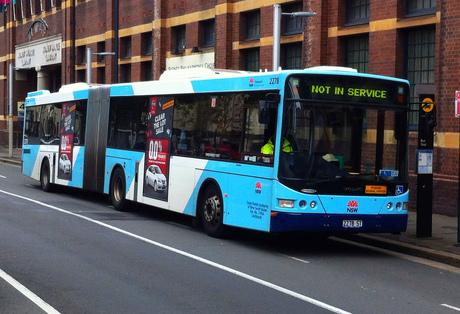Sydney Uni plans crowdsourced public transit app

University of Sydney boffins are developing a mobile app aimed at allowing public transport users to share information about problems with other customers and transport operators in real-time.
The app, RateIT, will allow users to exchange information about problems including crowding, delays and safety.
Project lead Dr Claudine Moutou said travellers will be able to use the app to “warn each other that a particular bus is full, there are rowdy students on board or the air conditioning has failed”.
Moutou, a lecturer in the University of Sydney Business School’s Institute of Transport and Logistics Studies, said transit operators will also be linked directly into the system.
“For example, using information supplied by passengers via RateIT, a bus operator can respond to delays on the rail network, gauge the need for additional services and inform travellers accordingly,” she said.
She envisions the app as an important tool for mass transport operators under pressure to provide better services to more people for less money. “Data collected in the RateIT app will help us to answer important questions about passenger expectations and how long they will tolerate a less than perfect service.”
The researchers plan to trial the app towards the end of the year on buses operated by Sydney’s Forest Coach Lines.
Professors Judy Kay and Robert Kummerfeld from the university’s School of Information Technologies and a number of IT students will also help design RateIT. Development is being supported by the university’s Henry Halloran Trust.
Four ways AI can finally make threat intelligence useful and not just noisy
Done poorly, threat intelligence is noise. But done well, it becomes one of the most powerful...
Australia’s top tech priorities for 2026
It is anticipated that AI will evolve from a pilot project to a productive standard, underpinned...
Why AI's longevity lies in utility, not novelty
The real potential of AI is in underpinning the invisible systems powering everyday business.







